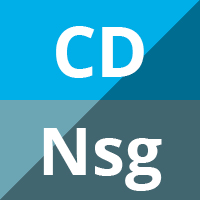
Overground physical therapy gait training for chronic stroke patients with mobility deficits
Abstract Background Overground gait training forms a major part of physical therapy services for chronic stroke patients in almost every setting. Overground gait training refers to physical therapists’ observation and cueing of the patient’s walking pattern along with related exercises, but does not include high-technology aids such as functional electrical stimulation or body weight support. […]

Interventions in the management of serum lipids for preventing stroke recurrence
Abstract Background Studies have shown that interventions which reduce total and low-density lipoprotein cholesterol levels also reduce coronary heart disease (CHD) and stroke events in those with a history of CHD. However, it is uncertain whether treatment to alter cholesterol levels can prevent recurrence of either stroke or subsequent cardiovascular events and whether differences in […]

Anticoagulants for preventing recurrence following presumed non-cardioembolic ischaemic stroke or transient ischaemic attack
Abstract Background After a first ischaemic stroke, further vascular events due to thromboembolism are common and often fatal. Anticoagulants could potentially reduce the risk of such events, but any benefits could be offset by an increased risk of fatal or disabling haemorrhages. Objectives To assess the effect of prolonged anticoagulant therapy compared with placebo or […]

Cooling therapy for acute stroke
Abstract Background Increased body temperatures are common in patients with acute stroke and are associated with poor outcome. In animal models of focal cerebral ischaemia, temperature-lowering therapy reduces infarct volume. In patients with acute stroke, lowering temperature may therefore improve outcome. This is an update of a Cochrane review first published in 1999. Objectives To […]

Very early versus delayed mobilisation after stroke
Abstract Background Very early mobilisation is performed in some stroke units and recommended in acute stroke clinical guidelines. It is unclear whether very early mobilisation independently improves outcome after stroke. Objectives To determine the benefits and harms of very early mobilisation (commenced within 48 hours of stroke) compared with conventional care. Search methods We searched […]

Surgery for primary supratentorial intracerebral haemorrhage
Abstract Background There is considerable international variation in the rate and indications of surgery for primary supratentorial intracerebral haematoma, reflecting the uncertainty about the effects of surgery. Recently, some large randomised trials have appeared in the literature but the controversy over its role continues. This is an update of a Cochrane review first published in […]

Dengzhanhua preparations for acute cerebral infarction
Abstract Background Dengzhanhua preparations are widely used in China. Many controlled trials have been undertaken to investigate the efficacy of dengzhanhua preparations in the treatment of acute cerebral infarction. Objectives To assess whether dengzhanhua preparations are effective and safe at improving outcomes in patients with acute cerebral infarction. Search methods We searched the Cochrane Stroke […]

Chuanxiong-type preparations for acute ischemic stroke
Abstract Background Stroke, 88% of which are ischemic, is a common cause of death and disability all over the world. Chuanxiong has been reported to be beneficial in treating stroke. However, the strength of evidence to support its use is unclear. Objectives To assess the safety and efficacy of chuanxiong for acute ischemic stroke. Search […]

Sanchi for acute ischaemic stroke
Abstract Background Currently very few drugs are supported for routine use for acute ischaemic stroke. Sanchi is one of the most widely used herbal medicines for ischaemic stroke in China. Objectives To assess the effectiveness and safety of sanchi in the treatment of acute ischaemic stroke. Search methods We searched the Cochrane Stroke Group Trials […]

Tongxinluo capsule for acute stroke
Abstract Background Tongxinluo capsules are a compound of Chinese traditional medicine which contain substances that are thought to have vasodilatory, antiplatelet, anticoagulant, thrombolytic and even lipid-lowering properties, and therefore may improve outcome after acute ischaemic stroke. To date the evidence of its effect has not been systematically reviewed, making it difficult to derive robust conclusions […]

